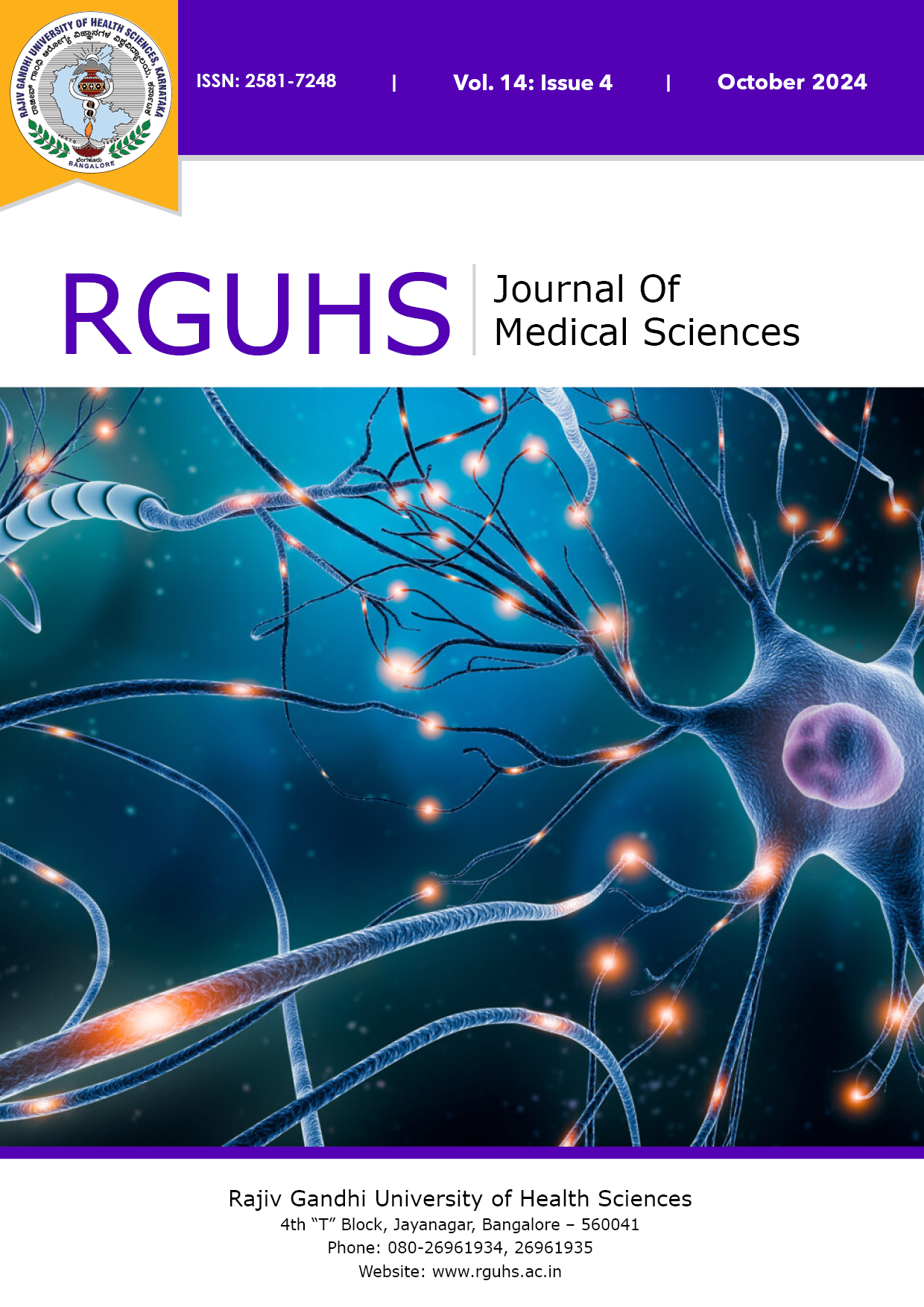
Abbreviation: RJMS Vol: 15 Issue: 1 eISSN: 2581-7248 pISSN 2231-1947
Dear Authors,
We invite you to watch this comprehensive video guide on the process of submitting your article online. This video will provide you with step-by-step instructions to ensure a smooth and successful submission.
Thank you for your attention and cooperation.
Sangram Biradar*, Muddsir Indikar**
*Associate Professor,
**Post-Graduate,
Department of Medicine, Basaveshwar Teaching & General Hospital, Kalaburagi.
Corresponding Author:
Dr Sangram Biradar, Associate Professor: Department of Medicine Basaveshwar Hospital, Kalaburagi 585105 drsangramb@yahoo.com.

Abstract
None
Keywords
Downloads
-
1FullTextPDF
Article
A 60 year male presented with a history of global aphasia and weakness of right upper and lower limb since 2 months with an insidious in onset and was non- progressive. The patient was a known case of hypertension since 5 years on irregular treatment. Investigation with 3D TOF M R Angiography showed complete occlusion of all C2 TO C6 (Petrous, lacerum, cavernous, and supraclinoid segments of left internal carotid artery, and koderate steno-occlusion of left middle cerebral artery (Image 1-3). MRI Brain showed left subacute infarct in left ganglio-capsular region, left corona radiata, left frontal and posterior parietal region and sub cortical white matter (Image 4), Vitamin B12 level showed< 50 pg/ml (Normal 120-180 pg/ml). Serum homocysteine levels were 32.7 micromol/l (5-13micromol/l) Irregular treatment for hypertension must have de-arranged vitamin B-12 levels and serum homocystein levels. It should be mentioned that high homocysteine levels has led to low vitamin B 12 levels. These are major risk factors for vascular disease.
Supporting File
References
None



